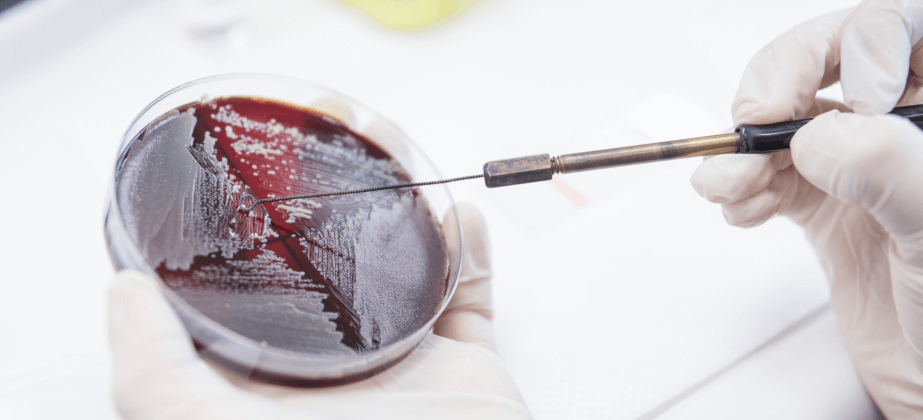
Graduate Certificate in Forensic and Crime Scene Investigations
Online or In-Person
Flexible options
Finish in 7 months
Average completion time
Year-round enrollment
Our admissions team reviews applications year-round

Take the first step in your National University Journey

Program Overview
Degree:
Graduate Certificate in Forensic and Crime Scene Investigations Degree
Application:
$0 application fee. No essays/exams.
The Certificate in Forensic and Crime Scene Investigation (FCSI) is designed to prepare you to enter the field of forensic and crime scene investigation, and for those currently in the field as law enforcement personnel, criminal investigators, evidence technicians, forensic nurses, prosecutors, attorneys, judges, and other members of the multidisciplinary team involved in criminal investigation who would like to further develop their skills and expertise. If you want to attend crime scene investigator school to pursue a master’s degree, you may be able to apply some or all the academic credits awarded in the certificate program toward the MFS degree.
Degree Requirements
Students who wish to pursue a master’s degree can apply some or all the academic credits awarded in the certificate program toward the MFS degree, assuming they meet the GPA and other requirements of that degree program.
Program Requirements
7 Courses
Forensic Pathology I
4.5 Quarter Units
Forensic terminology, anatomy, and physiology of the human body with emphasis on the understanding of the underlying pathology of sudden, unexpected deaths encountered in forensics, Sudden Infant Death Syndrome (SIDS), methods personal identification and different types of injuries with their characteristic features and mechanisms of death.
Forensic Pathology II
4.5 Quarter Units
Prerequisite: FSC 630
The scientific techniques used in Medicolegal investigations of regional injuries and death, firearm injuries transportation injuries, physical injuries, trauma and disease, child abuse, sexual assaults, diagnosis of rape, pregnancy, abortion and delivery. Infanticide, asphyxial and drug deaths. Forensic medical evidence and records for the court.
Crime Scene Investigation
4.5 Quarter Units
A comprehensive study of the techniques and procedures used for approaching and protecting the crime scene, survey and documentation, detailed search of the scene, initial evidence collection and packaging, processing the scene for latent prints and maintaining the chain-of-custody. The legal and scientific principles of crime scene searches and seizures.
Advanced Criminalistics
4.5 Quarter Units
This class surveys physical evidence with an introduction to the operation of a forensic science laboratory and an overview of many of the analytical tools used in the criminalistics laboratory. Principles of chain of custody; and role of forensic scientist as expert witness.
Digital Evidence
4.5 Quarter Units
This course will provide broad perspective on theory, technique and practice of digital evidence investigation. Different types of digital related crime, including fraud, stalking, identity theft, and internet related crimes. Chain of custody and current legal issues on digital evidence.
Law and Criminal Procedure
4.5 Quarter Units
This course is an examination of the foundation for understanding Constitutional laws. The course will cover various sections of the Constitution and how law enforcement officials may obtain evidence and conduct a search and seizure.
Fingerprint Analysis
4.5 Quarter Units
Introduction to basic principles and techniques of fingerprints as applied to crime scenes, forensic evidence, identification, and court presentation. Methods of recognition, proper collection of known and latent fingerprints, processing, classification and comparison. Courtroom presentations will be discussed
Program Learning Outcomes
- Demonstrate understanding of basic human anatomy, component of death investigation and techniques used for analysis of diseases and trauma, and identification of unknown dead bodies.
- Differentiate the characteristic features of the various types of violent death with the circumstances under which those deaths occur and to meaningfully interact with the forensic pathologist and medico-legal death investigators.
- Demonstrate and describe the basic principles and the role of crime scene investigators in forensic and legal procedures.
- Identify, collect, transport, preserve, and explain the evidentiary value of physical evidence including chain of custody.
- Explain & use the investigative techniques utilized in the processing, and interpretation of evidence of computer and multimedia (video, image, audio) forensics, and the application of the field in both the criminal and civil arenas.
- Demonstrate understanding of friction ridge skin differential development and how it applies to the classification of fingerprints and the methodology used in forensic individualization.
NU’s Public Safety Promise
National University, a Veteran-founded nonprofit, is proud to support public safety professionals who protect and serve our communities every day. To show appreciation, we commit to providing affordable, accessible education to all public safety professionals to advance their careers and help them reach educational goals through our Public Safety Promise Scholarship*.
To learn more about NU’s Public Safety Promise contact an enrollment advisor to discuss degree programs and scholarship options or visit https://www.nu.edu/our-university/the-university/partnerships/publicsafety/ .
*Nursing, radiation therapy, and doctoral programs are excluded from the tuition discount.

Admissions
Transfer Students Welcome
Enrolling in a university is a big decision. That’s why our dedicated admissions team is here to guide you through the admissions process and help you find the right program for you and your career goals.
To that end, we’ve simplified and streamlined our application process, so you can get enrolled in your program right away. Because we accept and review applications year round, you can begin class as soon as next month, depending on your program and location of choice.
Learn more about undergraduate, graduate, military, and international student admissions, plus admissions information for transfer students. You can also learn more about our tuition rates and financial aid opportunities.
To speak with our admissions team, call (855) 355-6288 or request information and an advisor will contact you shortly. If you’re ready to apply, simply start your application today.

Scholarships and Financial Aid
National University is dedicated to making higher education affordable, as well as accessible. Through NU scholarship offerings, eligible students are able to reduce the financial burden of college, start classes sooner, and finish their programs faster while focusing on achieving their goals.
Accreditations

The Western Association of Schools and Colleges (WASC) accredits public and private schools, colleges, and universities in the U.S.

Why National University?
We’re proud to be a Veteran-founded, San Diego-based nonprofit. Since 1971, our mission has been to provide accessible, achievable higher education to adult learners.
Today, we educate students from across the U.S. and around the globe, with over 245,000 alumni worldwide.

“National University has impacted my career. You can immediately apply what you learn in class to your business.”
Francisco R.,
Class of 2016
What makes a degree
with National University unique?
Free Tutoring Sessions
Access personalized tutoring sessions at no cost — empowering your learning.
Online and In-Person
Flexibility meets quality education with our online and in-person learning options.
24/7 Support
Get assistance anytime, anywhere with our round-the-clock support services.
Military Friendly
Committed to serving those who serve — diverse resources and support for veterans and family. Military and Veteran Admissions.
Mentoring Network
Individual student and alumni career guidance, professional development opportunities, and customized career support.
Transfer Students Welcome
NU makes it easy to get your degree, even if you started it with another university. Learn more about transferring to NU.
Accelerate Your Career With NU
At National University, you’re part of a family. As a student, you’ll have the support of staff, faculty members, students, and alumni who will be there with you every step of the way, cheering you on as you pursue your goals.
Our network of 245,000 alumni is a large global community that provides our graduates with the professional connections to get a leg up in your new career.

Additional Resources
Program Disclosure
Successful completion and attainment of National University degrees do not lead to automatic or immediate licensure, employment, or certification in any state/country. The University cannot guarantee that any professional organization or business will accept a graduate’s application to sit for any certification, licensure, or related exam for the purpose of professional certification.
Program availability varies by state. Many disciplines, professions, and jobs require disclosure of an individual’s criminal history, and a variety of states require background checks to apply to, or be eligible for, certain certificates, registrations, and licenses. Existence of a criminal history may also subject an individual to denial of an initial application for a certificate, registration, or license and/or result in the revocation or suspension of an existing certificate, registration, or license. Requirements can vary by state, occupation, and/or licensing authority.
NU graduates will be subject to additional requirements on a program, certification/licensure, employment, and state-by-state basis that can include one or more of the following items: internships, practicum experience, additional coursework, exams, tests, drug testing, earning an additional degree, and/or other training/education requirements.
All prospective students are advised to review employment, certification, and/or licensure requirements in their state, and to contact the certification/licensing body of the state and/or country where they intend to obtain certification/licensure to verify that these courses/programs qualify in that state/country, prior to enrolling. Prospective students are also advised to regularly review the state’s/country’s policies and procedures relating to certification/licensure, as those policies are subject to change.
National University degrees do not guarantee employment or salary of any kind. Prospective students are strongly encouraged to review desired job positions to review degrees, education, and/or training required to apply for desired positions. Prospective students should monitor these positions as requirements, salary, and other relevant factors can change over time.
Back to top